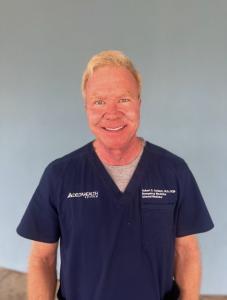Tackling Medical Emergencies: Dr. Robert Corkern’s Advanced Techniques for Critical Care
Tackling Medical Emergencies: Dr. Robert Corkern’s Advanced Techniques for Critical Care
Blog Article

In regards to healthcare, many individuals often confuse emergency medicine with internal medicine. Both are crucial divisions of medication, but they serve very different jobs in patient care. Dr Robert Corkern Mississippi, a renowned medical expert, explains the important thing variations between both of these specialties, shedding gentle on their unique stresses and how each plays a part in patient health. Understanding the variation between disaster medicine and internal medicine might help patients better navigate their healthcare needs and make educated decisions.
The Focus of Emergency Medicine
Crisis medicine is designed to give immediate, acute take care of people experiencing urgent or life-threatening conditions. Disaster physicians work in hospitals' disaster divisions (EDs), where they are usually the first level of contact for individuals experiencing extreme injuries, shots, center episodes, or other medical emergencies. Dr. Corkern highlights that emergency medication is all about stabilization and quick decision-making. Disaster physicians are experienced to take care of a wide variety of medical problems, often without having reveal medical record of the in-patient, and must produce rapid judgments centered on confined information.
The primary goal of disaster medicine is to stop further harm, stabilize the patient, and begin the correct interventions. From trauma attention to managing heart episodes or strokes, disaster physicians are specialists in handling intense symptoms and providing life-saving treatments in high-pressure environments.
The Position of Inner Medicine
On the other hand, internal medication targets detecting and controlling serious conditions and problems that influence people, such as diabetes, hypertension, and heart disease. Internal medicine specialists, or internists, work with individuals around a long period, providing comprehensive treatment and reduction strategies. Dr. Corkern explains that internal medicine is largely worried about the whole-body management of non-emergency medical issues. Internists usually serve as main treatment doctors, managing schedule check-ups, managing continuing solutions, and coordinating take care of patients with complex, long-term health issues.
While crisis physicians treat quick problems, internists have a more holistic and long-term way of individual health. They usually function directly with specialists in areas like cardiology, pulmonology, and nephrology to control persistent situations and make sure that people receive matched care for multiple wellness concerns.
Instruction and Method of Care
Dr. Corkern highlights the differences in working out necessary for both fields. Emergency medication requires physicians to be equipped for a wide spectrum of situations that could need quick, life-saving interventions. Disaster doctors are qualified to control trauma, critical illness, and acute exacerbations of chronic conditions. That training requires huge concentrate on acute care and advanced life-saving techniques, usually in high-stress environments.
On another hand, inner medication physicians undergo intensive training in the reduction, diagnosis, and therapy of serious conditions. They concentrate on providing long-term care, often handling a patient's medical record and coordinating with different specialists. The internist's method is patient-centered, with an increased exposure of long-term wellness maintenance and disease prevention.
When to Find Disaster Medicine or Inner Medication
Knowing when to seek disaster medication versus central medicine will make most of the big difference in the pace and kind of attention an individual receives. If you're encountering a medical emergency, such as for example significant chest pain, problem breathing, or sudden loss of mind, the er is the proper destination for a go. Nevertheless, for continuous health concerns, persistent disease management, or general health preservation, an interior medicine specialist is normally the most effective point of contact.
Conclusion:
Both crisis medication and internal medication perform critical tasks in patient treatment, but their methods, emphasis areas, and education differ significantly. Dr Robert Corkern's description gives quality on how these specialties purpose and when each is most relevant. By knowledge the distinctions, individuals may better navigate their healthcare wants and ensure they're seeking the proper kind of care at the right time. Whether experiencing a crisis or managing a persistent issue, both specialists are integral in sustaining and increasing health.
Report this page